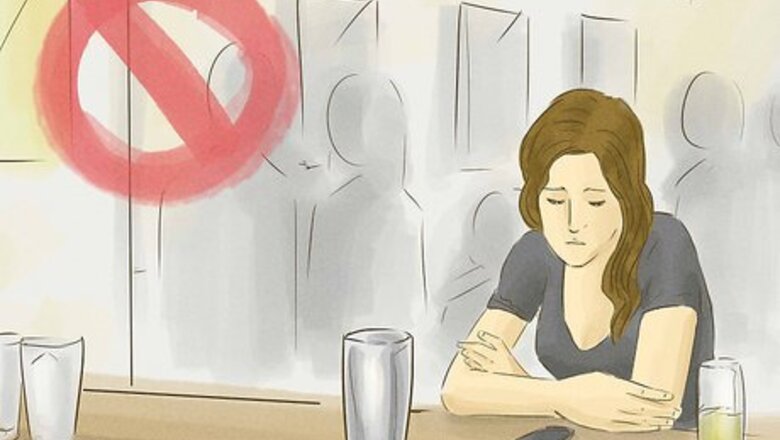
views
Finding Closure
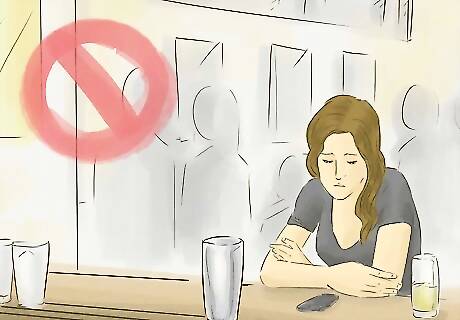
Avoid numbing your emotions. Many times when we are hurting we reach to substances or activities that help us numb the discomfort. However, numbing your emotions often causes you to pick up unhealthy habits. It also prevents these emotions from being properly identified and expressed. For example, people may drink alcohol, use drugs, comfort themselves with food, exercise too much, or shop excessively to help numb painful feelings after a breakup. If you notice yourself doing these things, acknowledge it and try to stop. If you can’t stop, you may need to seek professional help.

Look deeper. Maybe you have terrible thoughts or wish the worst regarding your ex. Nonetheless, chances are, these harsh feelings are hiding something less sinister beneath. Our strongest emotions sometimes hide behind other socially acceptable ones because these strong emotions may be scary or embarrassing to express. Take a moment to decipher what you are really feeling. Becoming more aware of these feelings may help you to move on. Grab a pen and paper and write down some of the thoughts or feelings that come to your mind. Also, notice any physical sensations you are experiencing. People often experience anger as tightness in the shoulders or back; fear may feel like a pit in your stomach; sadness may feel like a hollowness in your chest or throat. How would you label this feeling? Shame? Disappointment? Rejection? Guilt?

Take responsibility. Now that you have identified the emotions you are feeling, you must take ownership for them. The only way you can move on from hate is to recognize that you are in charge of how you feel. No outside person can make you feel a certain way — only you can. Take responsibility by changing your language. Instead of saying, “He made me feel worthless,” it is correct to actually say, “I feel worthless.” The other person didn’t make you feel that way. This strategy may seem like it’s removing all responsibility from your ex. It’s not. In fact, changing your perspective about who’s in control of your emotions helps you. How? If only you can make yourself feel hate or guilt or sadness, it also holds true that only you can make yourself feel joy and excitement, too. You will experience all these emotions again, without your ex.

Learn to calm your anger. Thoughts of your ex may bring up feelings of anger, maybe even rage. Instead of going down that path, learn ways to to calm yourself and not get carried away by negative feelings. Try deep breathing. Inhale a full breath for a count of five. Hold it for five seconds, then release for another five. Repeat until you begin to feel calm. Take a few deep breaths and slowly count up from one. Try counting to 10 but, if you still feel angry, keep going. Concentrate on the numbers, not on your ex. Learn more methods by reading the wikiHow article How to Calm Down.
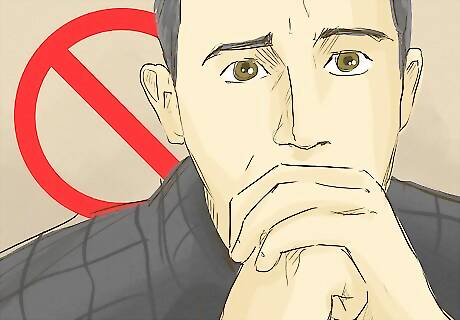
Stop ruminating. Nine times out of 10, you are thinking about what went wrong or how you were done wrong on a daily basis. This process only enhances your negative feelings. Rumination is the act of thinking about situations over and over again — not to problem-solve, just to brood. You can decrease the hate you feel towards your ex by reducing the amount of time you spend obsessing over the relationship. Here are two ways to stop rumination: Learn from your mistakes. Rather than stewing over what went wrong, identify the ways you grew or learned from the relationship. Release what you can’t control. A relationship is a two-way street of give and take. Both partners have to contribute to make it healthy and worthwhile. If you hate your ex for not being faithful, not putting in effort, or never wanting to compromise, you must recognize that these are all things out of your control. You can’t change or control the other person.

Say goodbye. In order to stop hating your ex and move forward with your life, you must let go. Let go of the pain, let go of trying to control, let go of the hold it has on your life. Performing a ritual can often give you the closure you need to look to the future more positively. Letting go rituals can consist of any actions you want to take to say goodbye to a past relationship. Write your ex a letter (you don’t have to mail it — tear it up or burn it if you want) expressing your feelings. Go to the beach and fill your palm with sand, letting it slip through your fingers to indicate the loss. Light a candle and think good thoughts and recount memories with this person before blowing out the flame.
Nurturing Current Relationships
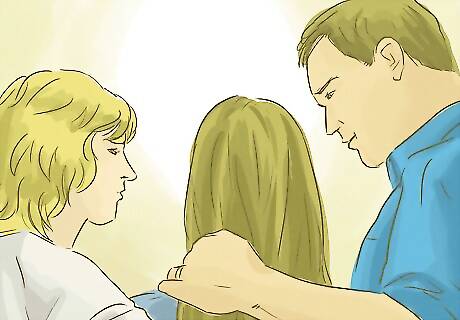
Don’t isolate yourself. You may feel alone after a breakup, but you don’t have to be. Reach out to friends or family members with whom you can share your feelings, or take your mind off things. You may even be able to find a local support group through Meetup to talk to others who are going through similar experiences. Be wary of falling into a rumination trap with others. Having a source of comfort is important, but you don’t want to spend your time with friends constantly badmouthing your ex. Focus on planning fun activities for the future instead of dwelling in the past.

Demonstrate gratitude for the people who have stuck by you. It can be easy to get lost in negative circumstance and develop a “woe is me” attitude. However, when you focus too much on what’s wrong, you fail to notice what’s right. Despite your past failed relationship, look around you at all the others who love and value you. Tell them how much you appreciate their presence in your life. Being grateful to others can actually make you feel good. Science tells us that people who practice gratitude experience more positive emotions, feel lonely less, feel happier, and have stronger immune systems.

Stay single for a while. It can be tempting to rush into a new relationship after a breakup. You might have difficulty with loneliness. You might want to prove to yourself (and your ex) that you are lovable and worthy. This is a bad idea. Using another person to help you get over an ex is unfair to the newcomer. Taking a break can help you learn from your past mistakes. Use this time to develop and figure out what it is you truly want in a partner. Learn to enjoy life on your own before adding another to the equation again.
Moving On

Make healthy choices. After a breakup, your brain will probably tell you to isolate yourself and make unhealthy decisions. However, neglecting your health will not help you to heal and move forward. Make positive decisions for your future by eating right, exercising, and engaging in regular self-care. Don’t skip meals; eat three to four balanced meals each day. Avoid alcohol or drugs. Find a physical activity you enjoy and engage in it regularly. Exercise generates endorphins which can lift your mood. Take up a hobby or participate in an activity that makes you feel good and relieves stress. Some ideas might include gardening, meditating, hiking, or painting.

Pursue your dreams. Use the time that you are spending feeling hatred or resentment toward your ex for the benefit of your future. What goals have you been putting off? What did you dream about doing before this relationship? Spend some time pondering your future. A breakup is an optimal time to reevaluate and determine whether you are leading the life you desire.
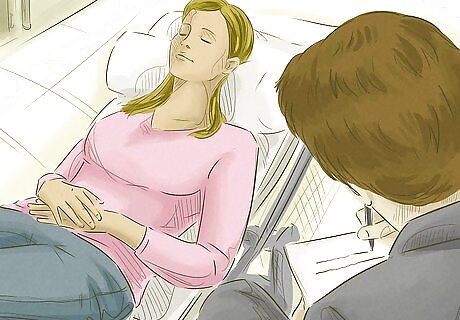
Seek professional help if you can’t feel better on your own. Breakups can lead to a host of negative feelings about oneself and others. If, no matter how much time passes, you continue to feel hatred toward your ex, mistrustful of others, or unworthy of being in a healthy relationship, you may need outside help. A mental health counselor can assist you in identifying the source of your discomfort and offer practical solutions for overcoming this roadblock in your life.




















Comments
0 comment